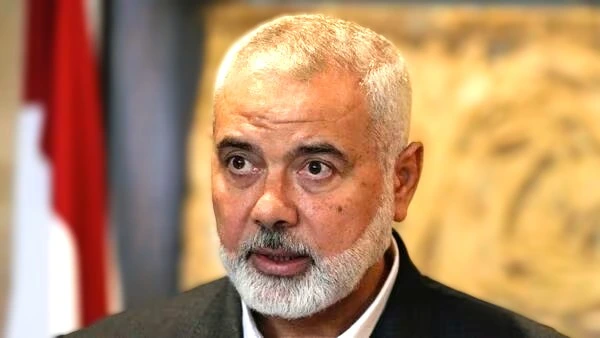Israeli Defense Minister, Yoav Katz, for the first time publicly confirmed Israel’s involvement in the assassination of Hamas leader Ismail Haniyeh, who was killed in an explosion in Iran this past summer. Katz also issued a stern warning to the Houthi rebel group in Yemen, vowing to take similar action against their leadership as part of Israel’s ongoing efforts to dismantle Iranian-backed militant networks in the region.
In his speech on Monday, Katz not only acknowledged Israel’s role in Haniyeh’s death but also highlighted the broader campaign against Iran-aligned forces, including Hamas, Hezbollah, and the Houthis. The defense minister reiterated Israel’s commitment to neutralizing any threats from these groups, suggesting that similar fates awaited Houthi leaders who have been targeting Israel with missile and drone attacks.
The assassination of Ismail Haniyeh, which occurred in July 2024, has been widely attributed to Israel, although the country had never officially confirmed its involvement until now. Haniyeh, the top political leader of Hamas, was reportedly killed in an explosion in Tehran. Prior to Katz’s remarks, Israeli officials had hinted at the country’s role, but this was the first official confirmation.
“Just as we eliminated Haniyeh, Sinwar, and Nasrallah from Tehran, Gaza, and Lebanon, we will target the leadership of the Houthis in Hodeida and Sanaa,” Katz declared, referring to the killing of Hamas leader Yehya Sinwar and Hezbollah’s Hassan Nasrallah. These groups, backed by Iran, have been central to Israel’s security concerns in the region.
The Israeli Defense Minister’s comments come amid escalating tensions in the region. Over the past several months, the Houthis, an Iranian-backed militant group in Yemen, have launched numerous missile and drone attacks against Israeli territory. Just this past weekend, a missile fired by the Houthis struck Tel Aviv, injuring at least 16 people. In response, Israel has carried out multiple airstrikes on Houthi positions in Yemen, vowing to intensify its military actions until the attacks cease.
“We will strike their strategic infrastructure and target the heads of the Houthi leadership, just as we have done with other terror groups that pose a threat to Israel,” Katz added during his address. This remark underscores Israel’s resolve to take direct action against its adversaries, particularly those connected to the Iranian regime, which Israel views as a significant regional threat.
Israel’s involvement in the Middle East’s complex network of conflicts has been increasingly evident in recent years. Beyond its battle with Hamas and Hezbollah, Israel has also engaged in operations against Iranian assets and forces in Syria, targeted Iran’s anti-aircraft systems, and played a role in destabilizing Syrian President Bashar al-Assad’s regime. These actions reflect Israel’s broader strategy of combating Iranian influence in the region.
The Houthis, who took control of Yemen’s capital Sanaa in 2014, have received significant military support from Iran. The group has since become a critical player in the wider conflict between Iran and its regional rivals, including Saudi Arabia and Israel. As part of the larger Iranian-led axis of influence, the Houthis have carried out numerous attacks against Israel, further complicating the already volatile security situation in the Middle East.
The potential for further escalation between Israel and the Houthis raises concerns of even broader regional instability. Israel’s military strategy, which includes airstrikes and direct actions against the leadership of militant groups, has already drawn criticism from various international actors, particularly those sympathetic to the Iranian-backed factions in the region. However, Israel remains steadfast in its stance that such measures are necessary to safeguard its national security.
Katz’s warning serves as a signal that Israel’s military operations are far from over. By drawing parallels between the elimination of Hamas and Hezbollah leaders and its planned actions against the Houthis, Katz underscores Israel’s commitment to confronting any groups that threaten its security, regardless of their geographical location or political affiliation. As the conflict continues to evolve, Israel’s role in shaping the dynamics of the Middle East appears set to remain a central element in the region’s ongoing geopolitical struggles.
Israel’s targeting of Haniyeh is just one chapter in its larger campaign to eliminate key figures from Iranian-backed groups, and with the Houthi threat growing, it seems that Israel’s military operations in Yemen are only likely to intensify in the coming months.







